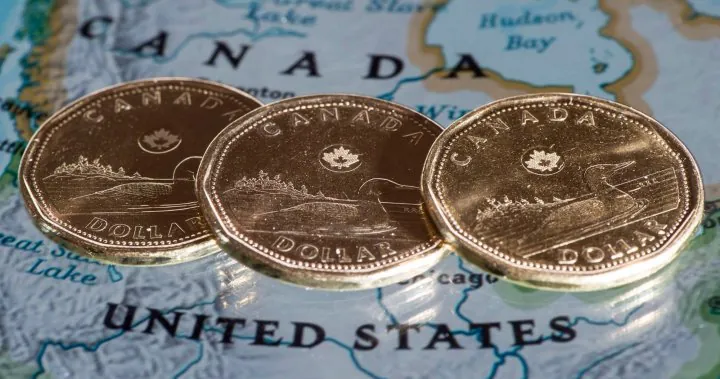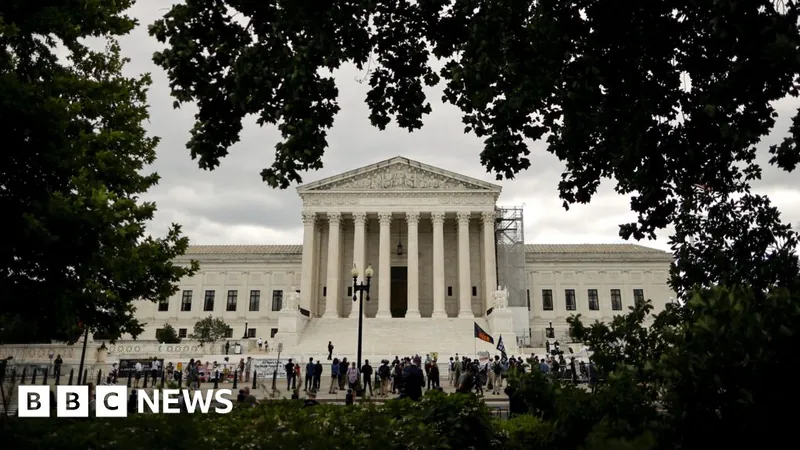
4 Major Financial Changes Canadians Could Face Under Trump’s Second Presidency
2025-01-20
Author: Jacob
As Donald Trump steps into his second term as President of the United States, Canadians are on high alert, mindful of the potential financial implications this could have. While Trump previously hinted at imposing drastic tariffs on imported goods—including those from Canada—the immediate threat seems to be on hold.
Instead of launching tariff measures right away, reports indicate that Trump plans to initiate a broad review of U.S. trade relations, focusing on major partners such as Canada and Mexico. This suggests that while immediate action may not happen, the possibility of tariffs looms on the horizon.
Canadians have already reacted to this news, as evidenced by a surge in the Canadian dollar, which gained value against its American counterpart upon hearing that tariffs won’t be imposed right away. Though it rallied around 1% on inauguration day, the loonie is still hovering just below 70 cents US, marking a decline of approximately six percent since Trump's election victory last November.
1. Travel Concerns and Currency Impact
The weaker Canadian dollar translates to less purchasing power for travelers heading to the U.S. Personal finance expert Rubina Ahmed-Haq suggested that families, including her own, have opted to vacation domestically rather than risk unfavorable currency exchange rates. She hinted that planning trips to all-inclusive resorts could minimize expenses associated with U.S. currency.
2. A Possible Trade War: A Looming Threat
Should Trump push forward with his "America First" agenda aggressively, Canadian enterprises may find themselves in a precarious situation. Experts warn that the potential for a trade war could force tariffs to be implemented from both sides of the border. This would inevitably lead to increased costs for businesses importing American products, with 40% of firms surveyed by the Bank of Canada already anticipating negative consequences from Trump's policies.
In particular, consumers could witness heightened prices for motor vehicles and even everyday groceries, especially those imported from the U.S.
3. The Grocery Prices Dilemma
For Canadian shoppers, the potential for rising prices at the grocery store could become a tangible issue, with winter months particularly affected due to the seasonal importation of fruits and vegetables from warmer states. Experts recommend that consumers shift their buying habits towards locally grown options when possible. However, such options may be scarce during colder months.
4. Economic Outlook and Investment Opportunities
Although U.S. markets remained closed for Martin Luther King Jr. Day, optimism surrounding stock market gains under Trump's pro-business policies is palpable. Experts expect continued volatility but predict that his first year in office may correlate with a stronger U.S. dollar and optimistic equity markets.
Canadian investors are being urged to increase exposure to U.S. markets, deemed a prime location for potential returns despite the weakened loonie. However, looming concerns about a recession in Canada persist, particularly if tariffs become a reality. Economic forecasts indicate that inflation could climb back to three percent, and unemployment rates may reach alarmingly high levels if Canadian industries face restrictive trade policies.
Preparing for Uncertainty
As these developments unfold, Canadians employed in sectors particularly susceptible to trade policies—such as automotive, steel, and aluminum—may need to brace for economic turbulence. Ahmed-Haq advises caution, suggesting that while the changes can be concerning, much of what affects Canadians is still influenced by domestic factors. She emphasized that even in a tense environment, price hikes won’t occur overnight.
With uncertainty, excitement, and perhaps skepticism reigniting in the wake of a Trump presidency, Canadians will need to stay informed and proactive to manage their financial futures effectively.









 Brasil (PT)
Brasil (PT)
 Canada (EN)
Canada (EN)
 Chile (ES)
Chile (ES)
 Česko (CS)
Česko (CS)
 대한민국 (KO)
대한민국 (KO)
 España (ES)
España (ES)
 France (FR)
France (FR)
 Hong Kong (EN)
Hong Kong (EN)
 Italia (IT)
Italia (IT)
 日本 (JA)
日本 (JA)
 Magyarország (HU)
Magyarország (HU)
 Norge (NO)
Norge (NO)
 Polska (PL)
Polska (PL)
 Schweiz (DE)
Schweiz (DE)
 Singapore (EN)
Singapore (EN)
 Sverige (SV)
Sverige (SV)
 Suomi (FI)
Suomi (FI)
 Türkiye (TR)
Türkiye (TR)
 الإمارات العربية المتحدة (AR)
الإمارات العربية المتحدة (AR)